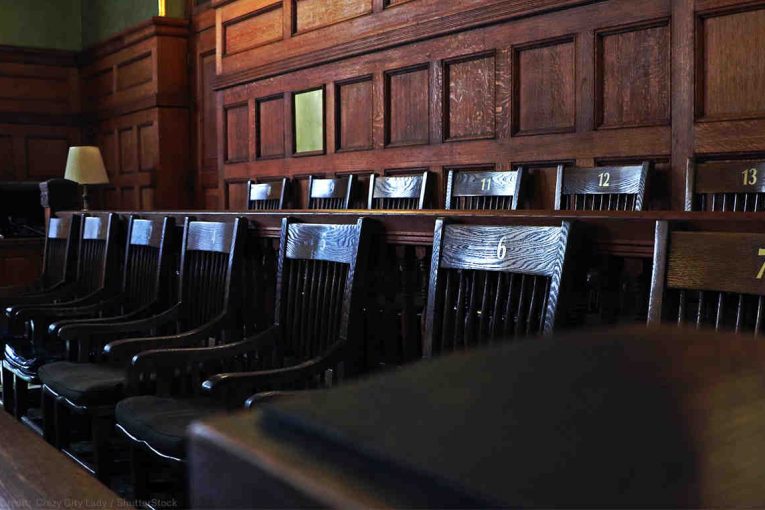
 By Rory Fleming
By Rory Fleming
Some prosecutors are racist. That assertion is not worth challenging; there is a copious amount of anecdotal evidence to back it up. But it does not take personal bigotry for a prosecutor to want to strike people of color from juries, just an overwhelming desire to convict at all costs.
At least, that’s what Jack McMahon, the former Philadelphia assistant district attorney who created the infamous “McMahon tapes,” had to say about it. In those tapes, McMahon also taught fellow prosecutors how to keep Black people off juries without breaking the law. He claimed this was because Black people are less likely to convict in the US, which academic studies agree with.
In Batson v. Kentucky, the Supreme Court ruled that prosecutors can’t use peremptory (not “for cause”) strikes against potential jurors based on race or gender. But all prosecutors have to do if challenged by the defense is come up with a “race neutral” reason for the strike. Judges will take pretty much any “race neutral” from prosecutors at face value. Some classically acceptable excuses include that preachers are too forgiving, scientists want scientific levels of proof, and college students like drugs too much to fairly evaluate drug possession cases.
Batson is the seminal case on discrimination in jury selection: all modern court decisions on the issue stem from  it. It is also easily circumvented, and the Supreme Court seems unlikely to make the ruling stronger.
it. It is also easily circumvented, and the Supreme Court seems unlikely to make the ruling stronger.
In response to these concerns, the Arizona Supreme Court just announced that it would abolish peremptory strikes going forward. Every single justice on that court was appointed by a Republican Governor.
This is a shocking move, considering how baked into the US justice system these not for-cause strikes are. It is unprecedented on the state level. On the local level, at least one newly elected progressive prosecutor — Parisa Dehghani-Tafti in Arlington County, Virginia — has told her deputies to no longer use peremptory strikes, due to concerns about racism creeping into decision-making.
If Arizona can get this done, any state can, and California should follow suit. In a democracy, people must be able to serve on juries and have equal rights to do so, regardless of the color of their skin. People charged with crimes should be able to count on having juries of their peers decide their guilt or innocence.
Furthermore, it’s just good policy. Yes, people of color vote Not Guilty more often than white people, but their extra suspicion of the cases prosecutors bring is unsurprising due to their higher likelihood of negative treatment by law enforcement. Those perspectives are important to balance out the extreme deference white jurors often show to law enforcement, as shown by how they have handled police shootings. All-white juries have also been responsible for some of the most egregious cases of wrongful conviction.
Both defense lawyers and prosecutors can use peremptory strikes, and each side can be surprisingly touchy when it comes to their continued existence.
Maricopa County Attorney Allister Adel’s chief deputy prosecutor, Kenneth Vick, told a Vox reporter that “expecting a prospective juror to candidly admit that they cannot be fair is not realistic.” But Mr. Vick, oversaw “attorneys and staff in charging, diversion, grand jury and preliminary hearings” for Adel’s predecessor, Bill Montgomery. That same Montgomery drew ire for leading prosecutions based on Joe Arpaio’s racial profiling of immigrants.
To express his discontent with Arizona’s new policy, one prominent New York defense attorney gave the hypothetical of the juror who the defense sees is glaring at the defendant with hatred. That’s not grounds for a “for cause” strike. But even assuming attorneys are that skilled at reading body language, juries have to be unanimous to convict. Just one juror of twelve needs to stand firm on Not Guilty to kill the case. Most likely, the glaring juror will just be one more voice trying to convince the hold-out juror to vote Guilty, and that hold-out will be better equipped to handle the pressure if his or her stance is informed by the realities of living in the US as a person of color.
Throughout history, law has been acknowledged as a conservative profession. Lawyers are usually bound to precedent, often dogmatically so. Our unwillingness to change should not be seen as a reason change is undesirable. California can, and should, be bolder in ensuring racial justice in the court system.
Rory Fleming is a freelance writer and licensed attorney.
